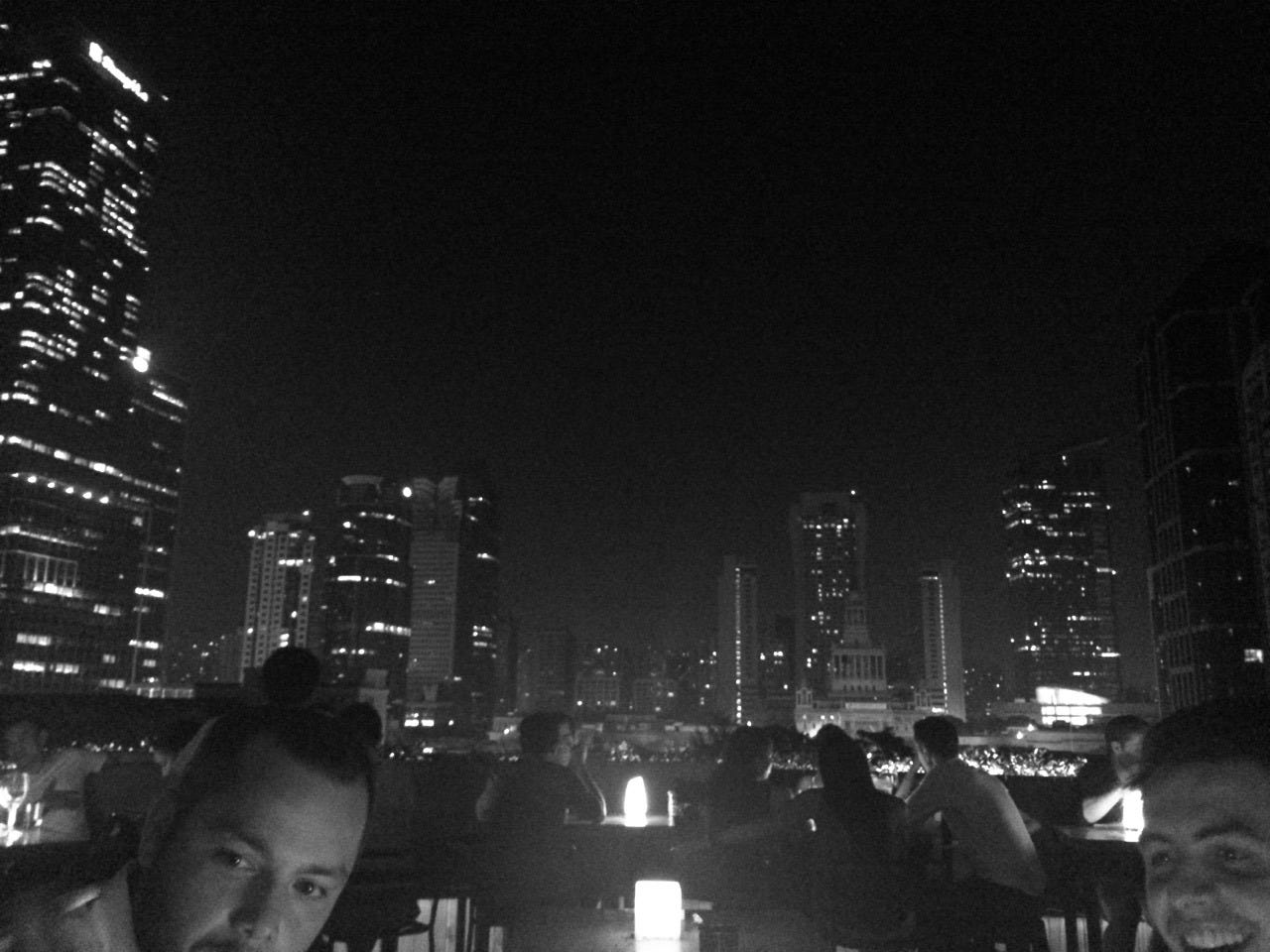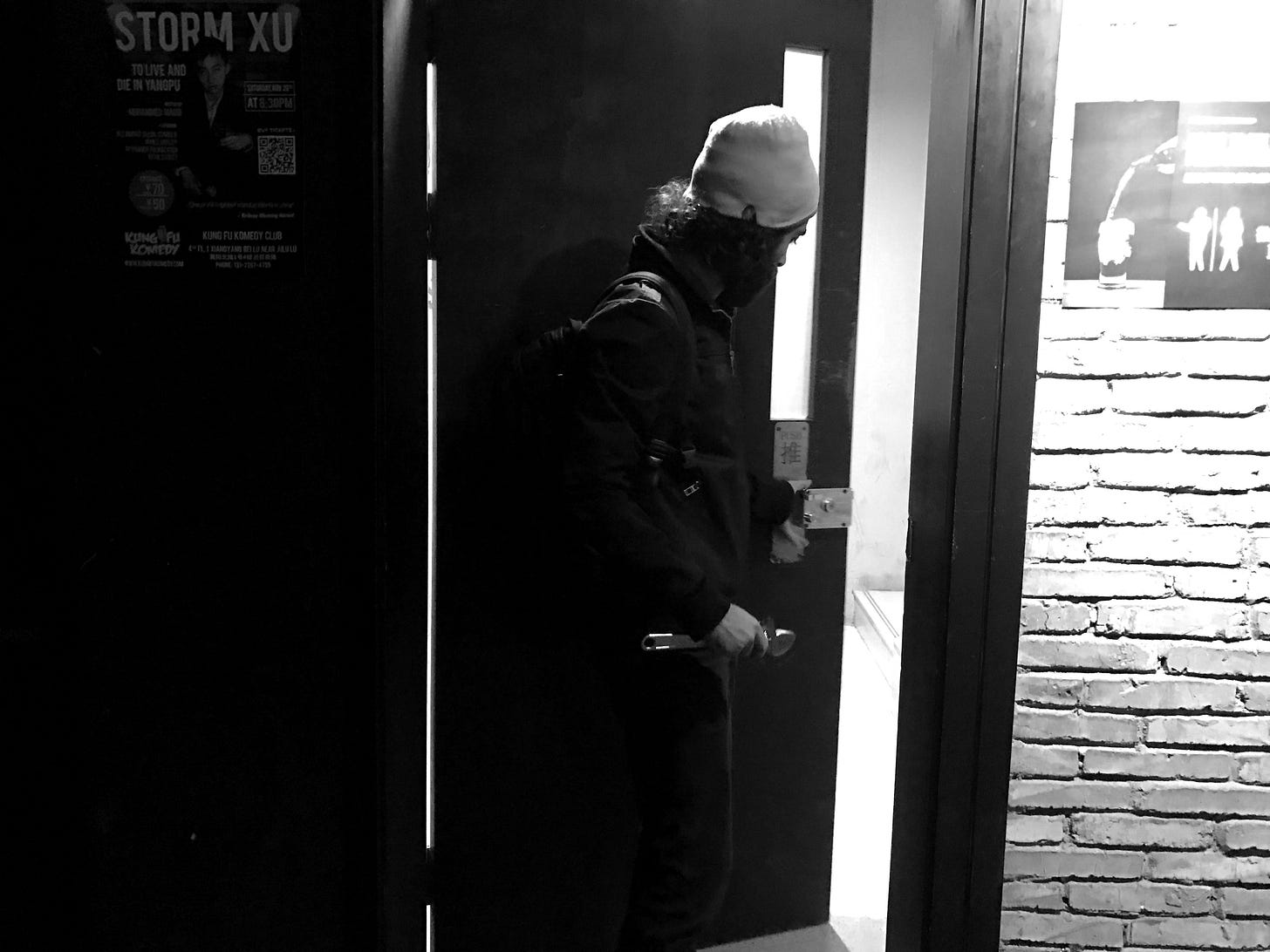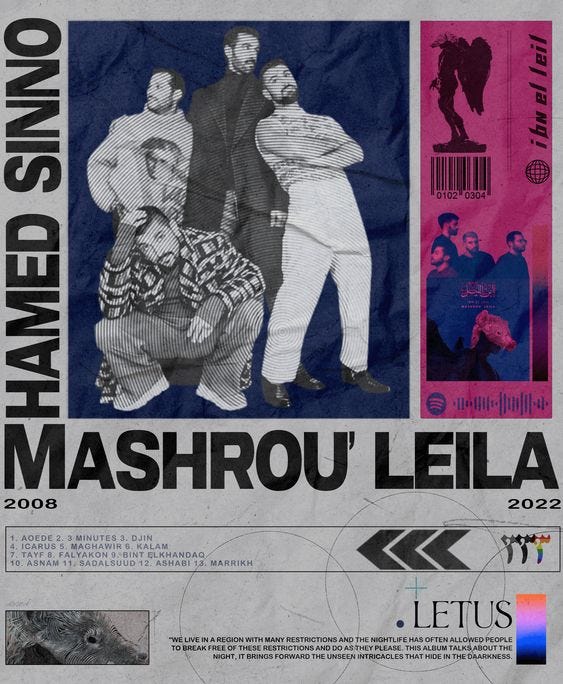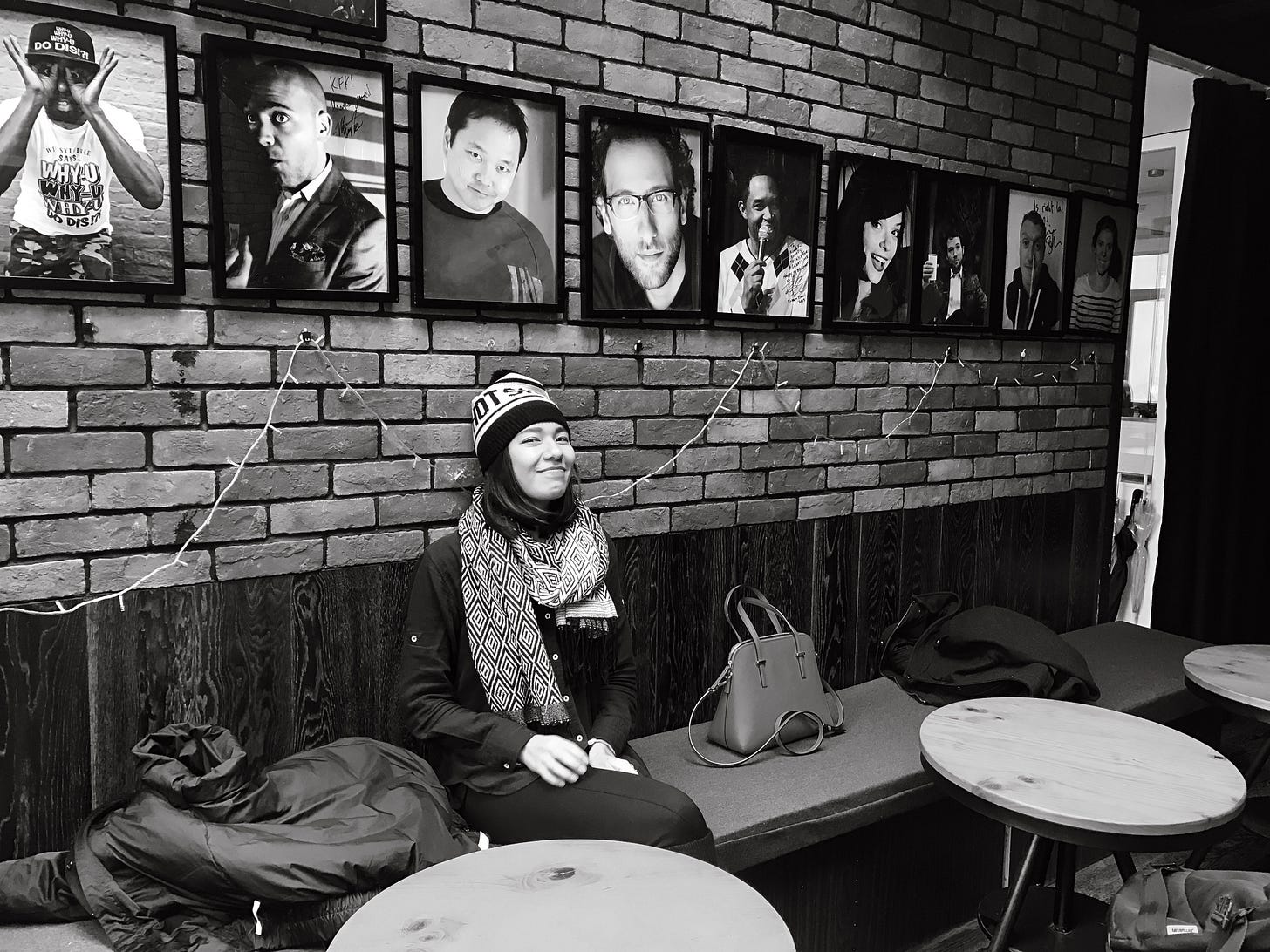How Mashrou Leila changed the course of my life: A story about music, love, and revolution
A lot of people wonder how in the world I ended up in Shanghai. The family-friendly version is that I went there to travel, work, and have another international experience under my belt. The truth is that I moved there because I fell disastrously in love with an Egyptian guy, which I highly doubt would have happened if the mention of a band and the sound of their music didn’t imbue the night with promise.
It was a hot and humid night in July when my classmates and I scurried off to do our thing in the gargantuan city of Shanghai. We’d spent day in and day out the whole week for our intensive course at Fudan University and we were more than ready to decompress on our own at least once. I didn’t have any must-sees in Shanghai, so in an effort to find something to do I thought back to the conversation I had on the plane with an amateur stand up comic from Switzerland and decided to check out the comedy club he had mentioned. With a VPN, Google Maps, and no idea that the entire course of my life would change that evening, a sweaty, lost, American student from Melbourne headed toward the Former French Concession and shortly arrived at the 4 story building where the comedy club was located.
“Sorry, you’re late, the show is over,” the guy behind the bar said.
He looked as hot and over his day as I was. I could sense that he was annoyed by my arrival. Who wouldn’t be when they’re closing up? But maybe it was the neon signage that was still buzzing or the sepia toned lighting that changed his mind because he let me stay a bit longer. “Would you like a drink? On the house” he asked, still rinsing the beer glasses and wiping down the bar. “Yes!” After walking around in what felt like a sauna, I was happy to not leave right away and take a breather. It turned into more than a breather though, because M and I ended up talking for longer than either of us expected. We talked about the similarities between Arabic and Mongolian. He told me what it was like to be part of the Egyptian Revolution in 2011. We talked about my Mongolian-Mexican-Russian background. We talked about music. Each topic peaked more interest still. Time simply disappeared.
“Hey, do you know Altan Urag?” he said once we got our backgrounds out the way. I almost choked on my drink. I was often having to educate people about Mongolia as a country with its own language, unique cultural identity, and musical styles, but here was a guy who could already name a very cool Mongolian folk rock band. “No way, how do you know them?” I asked. “Of course I know them, but do you know any music in Arabic?” he quizzed. Feeling challenged, I bust out my iPhone and showed him the only Arabic language band I had on there — Mashrou Leila. Check mate. He was surprised and something happened at that moment. A recognition of the other in a world that deemed us both invisible. He promptly played “Fasateen” (Dresses) from the club speakers and Hamed Sinno’s undulating voice slowly etched our future into our hands. It was, in a way, the perfect first date and one I would come to regret.
Note: Unlike many artists in the Middle East that sing in Egyptian dialect, Mashrou Leila sings in Lebanese Arabic to add to their commitment to authentic representation of themselves and what they stand for. Despite the difference in dialect, the band’s irreverence resonated with the younger general across the MENA region and varying Arabic dialects, including young and avant-garde Egyptians.
Meaning “The Night Project”, Mashrou Leila was founded in 2008 by a group of students at the American University of Beirut who enjoyed jamming late into the night. Members included vocalist Hamed Sinno, violinist Haig Papazian, drummer Carl Gerges, bass guitarist Ibrahim Badr, and keyboard and guitarist Firas Abou Fakher. Together, they composed an indie rock reminiscent of OneRepublic albeit with the richness of Arabic expression. Their lyrics are daring, using male pronouns to talk about homosexual love and heartbreak, but also the political issues that surround them. For example, in “Maghawir” (Commando) they sing about the shooting of two lovers at a Beirut nightclub, addressing the lax gun laws in Lebanon and the overall culture’s issue with male aggression. In “Shim El Yasmine” (Scent of Jasmine), they sing about leaving a homosexual lover for a heterosexual marriage. Let’s just say they certainly got under the skin of many conservative groups across the Middle East.
During their 14 years together before disbanding in September 2022, Mashrou Leila released 4 studio albums and an EP. Early in their career they won awards at the Radio Liban Modern Music Contest and continued to win international awards up until their dissolution. With regional and international fame inevitably came the backlash from fanatical conservative groups that often came in forms of harassment, censorship, and banning their concerts. In Egypt, for example, fans raised a rainbow flag during a concert in 2017 which triggered several arrests and a ban on future concerts. The same happened in Jordan. In Lebanon, Christian groups protested against the lyrics they considered “blasphemous” and against traditional values. In 2014, they were featured on the cover of Rolling Stone magazine becoming the first Middle Eastern ban to be featured. While Mashrou Leila has long disbanded, lead singer Hamed Sinno continues to advocate for LGBT rights in the Middle East and beyond.
اذا لمستك بحلاوة رقصك قربي علي شوي / If your touch is as sweet as your dance come a little closer
في جحيم تحت جلدي وانتي ايديك باردين / There’s hell under my skin and your hands are cold
And as for me, this band remains inextricably linked to a personal revolution of my own. I no longer regret that evening. It was makhtub, written in the stars. It’s obviously not my intention to misappropriate the larger significance of what this band stands for with my heterosexual story of love and rebirth. It goes without saying that Mashrou Leila means way more than that. Nevertheless I also can’t deny that this band pinpoints the exact moment that the course of my life changed forever. Not only did I pick up and leave everything I had in Australia in what seemed to be the romantic gesture of the century, but the relationship that ensued was as passionate as the sustained vocal maqams in “Fasateen” (Dresses) and as forlorn in its lows as the cry of the violin in “Kalam” (Words). I don’t know that the same sparks would have flied had the maqam infused melodies not reverberated that night.
What I do know is that Mashrou Leila became the soundtrack of a love that set me ablaze and forced me to rise from its ashes. With the lessons I had learned from M, both sweet and bitter, I was able to slowly but surely usher in a new era of my life with a brand new heart and pair of eyes, and for that, shukran ya’habibi.
يا الياسمينه / My jasmine
انساني / Forget me
يا الياسمينه / My jasmine
وشم الياسمينه / And smell the jasmine
واتذكر تنساني / And remember to forget me





So want to listen to this music now 🎶